Growing trade relations, Taliban takeover, WTO accession, freedom of speech – interview with British Ambassador
Kun.uz correspondent conducted an interview with the outgoing British Ambassador Timothy Torlot, who will retire from diplomatic service with the completion of his mission in Tashkent and will be replaced by the newly appointed Ambassador Timothy Smart in August.
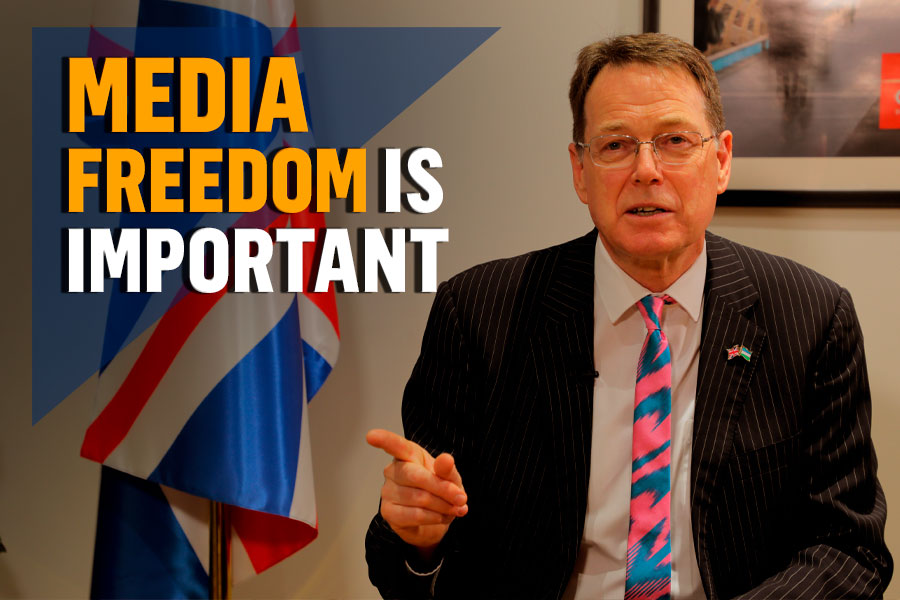
During the interview, Ambassador Tim Torlot spoke about the changes observed in bilateral relations between Uzbekistan and the UK over the past four years, opportunities to further strengthen trade ties, cooperation in education, security issues in Central Asia, the war in Ukraine and many other politically important topics.
Over the past four years, since you were appointed to this position, a lot has changed both in the UK and in Uzbekistan. For example, you left the EU, mourned for the late queen, saw the new king ascend to the throne and we all experienced the trauma of the global pandemic and so on. These are lots of changes. How did all these affect bilateral relations between Uzbekistan and the UK, in your opinion?
Well, I think, the UK has always attached a lot of importance to Central Asia generally, and to Uzbekistan in particular. We were one of the first European countries to establish embassies in all five Central Asian countries.
Our departure from the European Union is, of course, controversial and will continue to have a real impact, transforming the way that we can deal with the rest of the world. I think all of us saw in our departure from Brexit the opportunity to reach out beyond Europe. Europe is still a really important partner; individual countries within Europe and the EU as an entity. All of those are still important to us. But it was a way of galvanizing, incentivizing the UK to reach out further, to the rest of the world in a way that I think, I, as a diplomat, have been trying to do for all of my career.
I should also note that the global events equally affected Uzbekistan as well. I have been here, as you say, for nearly four years. In that time, we have seen the global pandemic, which had a huge impact on this country, the Taliban takeover in Afghanistan, which again shook up the security and economic foundations of this country, and then most recently, and the saddest of all, Russia’s extraordinary, cruel, illegal attempt to invade Ukraine, which again has impacted on you economically, socially.
In this period of turmoil, I think, what I would say is that we’ve done extraordinary things to enhance, boost and consolidate our relationship with Uzbekistan. You were the first country worldwide with whom we signed the GSP+ (Generalized Scheme of Preferences Plus) agreement, enabling the export of Uzbek agricultural produces, and manufactured goods tariff-free to the UK. You were the first country in Central Asia that we signed our Enhanced Partnership and Cooperation Agreement. We’ve launched a development program here, and started a seasonal workers program, enabling Uzbek agricultural workers to go and work in the UK.
We have massively expanded the work we do on security cooperation and trade. Even COVID provided an opportunity for us to reach out to British businesses in a way that we hadn’t been doing before. We had 800 businessmen and women participating in the Uzbek-British Trade and Industry Council meeting online in 2021 and that led to a huge trade delegation, 126 business people, coming to Uzbekistan last year. I hope that will slowly be seen in our trade statistics.
To support all of this, we’ve doubled in size as an embassy. When I arrived here, we had only six UK-based staff working here and we are now twelve. So, I think we have invested real effort to support our relations over the past four years.
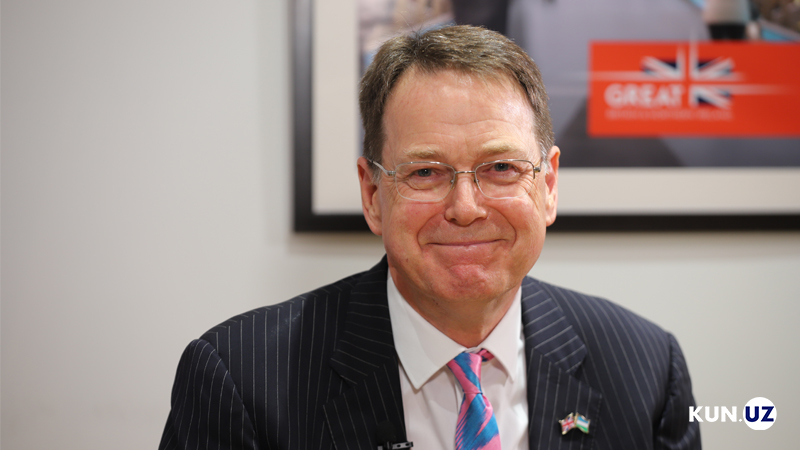
However, trade turnover between Uzbekistan and the UK is still rather low. Isn’t it? Are there any specific plans to boost it in the near future? And what industrial products could be of interest to the UK to import from Uzbekistan?
I agree with you. I find it surprising how little we trade and invest in this country, given the opportunities, the speed, and the ambition with which this country is opening up. As I suggested a little bit earlier in my previous answer, we are using the traditional processes of our annual trade and investment conference to promote the opportunities. We are focusing on particular sectors of the economy, where we think the UK business would be particularly able to add value and benefit.
We are also trying to aid the government’s efforts to reduce the role of the state and to make state-owned enterprises more competitive either through privatization or just through the transformation of the governance in the way they are run.
We are taking groups of business people to the UK and we continue to do that. In September, for example, there is another group, a banking group, going to London.
Also, we got the trade minister coming in August to Uzbekistan. The first such visit took place last year in the summer.
We are focused on the areas where we think we can bring more value to the economy and obviously profit British business. Those areas for us would be financial and professional services, the energy sector, and education.
Since the start of the war in Ukraine, the UK intelligence service – MI 6 – has been quite accurate in predicting possible scenarios. Based on that, could you please tell us how you see the future of this confrontation and what could be the probable outcomes for Uzbekistan? Can sanctions of the West target Uzbekistan as well?
There is a lot in that question. I will try and deal with all the different bits. This dreadful war in Ukraine is impacting the lives of so many ordinary people, it is killing young Russians and others. It is having a disastrous impact on the regional and global economy and Russia’s decision this week to withdraw from the Black Sea Grain Initiative is going to put in peril global food supplies, threaten the agreement that facilitated the export of 2 million tons of grain to poor and developing countries in Africa and elsewhere in the world. It is a disastrous move; this whole war is a catastrophe and a mistake.
The only way to put an end to this war is for Russia to withdraw its troops from the occupied areas in Ukraine and stop its move. We will continue to support Ukraine militarily and from a humanitarian perspective. We have given £350 million worth of humanitarian support to Ukraine since the beginning of the war and we will continue to do that until the last Russian soldier leaves the sovereign territory of Ukraine.
To be honest, I am not that optimistic at the moment. I see no sign despite the tensions, despite the turmoil in Russia, despite the disastrous impact on the economy, that President Putin is slowing down the war. Russia has a huge economic power and might, and a strong military. Although I think the war is also exposing the failings of the Russian military both in terms of its equipment, in terms of its organization, and in terms of the way it fights.
We will continue to support Ukraine through thick and thin and we will continue to work bilaterally with the European Union, with our partners, with NATO, and all over the world.
You talked about sanctions. I think first and foremost, sanctions have two direct targets: the Putin regime itself and his closest supporters who have corrupted Russia and who are funding the war. So, we will target them with financial sanctions. We are also very determined to prevent UK goods from reaching Russia that could materially affect the conduct of the war and we are doing it through sanctions. That could only affect Uzbekistan when goods produced in the UK or exported from the UK reach Russia via a third country, in this case, Uzbekistan.
We will work with your government to prevent the export of those goods through Uzbekistan. I should note here that we have found the Uzbek government, the Central Bank, and relevant ministries to be extremely helpful and cooperative. The president told the EU’s Special Representative on sanctions when he visited earlier in the year that he would not allow Uzbekistan to be used as a country to bypass sanctions and that’s a very welcome political endorsement.
We are not trying to stop legitimate exports of Uzbek goods to Russia, that is not covered by the sanctions. That would be wrong in international terms. We continue to have a strong dialogue to explain our sanctions to the Uzbek government. We have a team this week coming from the Foreign Ministry and the Ministry of Finance for technical discussions here. We will continue to do that to make sure that your government and others understand the impact of sanctions and can help us to implement them, but we are not trying to stop legitimate trade.
Previously, the embassy actively reacted to incidents with the freedom of speech and commented on them on social networks, expressing its position. But recently we see a sort of indifference from the embassy with regard to such cases. What is the reason for that?
I don’t accept this indifference on the part of the embassy at all. I, personally, and the embassy continue to think media freedom is incredibly important. I’m sorry if you think that we haven’t been commenting as actively as we used to. I’m casting my mind back… I think it is only last week or a couple of weeks ago that I commented on the pressure that was put on Gazeta.uz to withdraw the article that they wrote on the first anniversary of the events in Karakalpakstan. It was a good article that talked about important events in the political, social, and economic life of this country.
I had my farewell meeting with the Foreign Minister yesterday and media freedom came up in that.
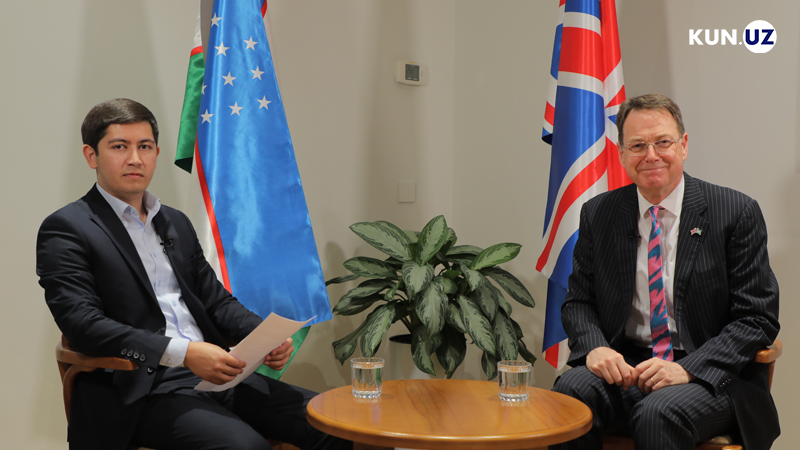
We continue to believe passionately that it is important for the new Uzbekistan that the president is trying to create, and we wholeheartedly support the measures that he talked about, to have media freedom. Things can go wrong, but media freedom is important.
One area where you might be justified in the criticism is when I arrived here, we were using quite a lot of our funding to support independent journalism and encourage a more open approach from the government towards independent media. However, partly because a number of other international actors are now doing that and partly because we’ve had to rationalize our resources a little bit, we are now doing more to support women’s rights, particularly to fight gender-based violence. We are also doing more on climate issues; we have a good project that we are working on with the UN. In addition, we are doing more to support labor migration. All of that has an impact on human rights.
So, we have shifted our resources a bit away. But it doesn’t mean we are not doing any work in the human rights area and I continue to believe passionately in media freedom.
Watch the full video on YouTube
Related News
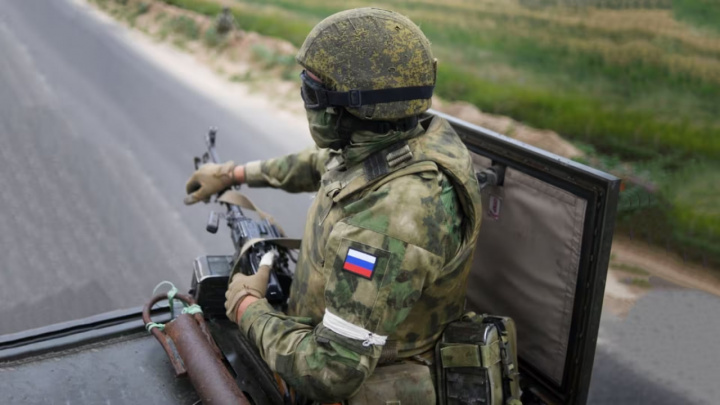
10:13 / 24.06.2025
Andijan court jails labor migrant for joining Russian armed forces
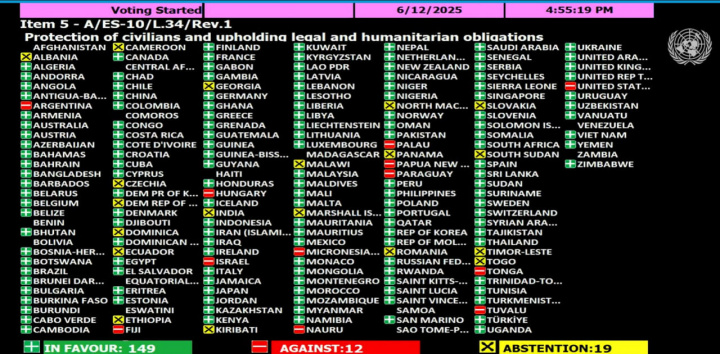
12:35 / 14.06.2025
Uzbekistan and 148 UN member states demand immediate ceasefire in Gaza
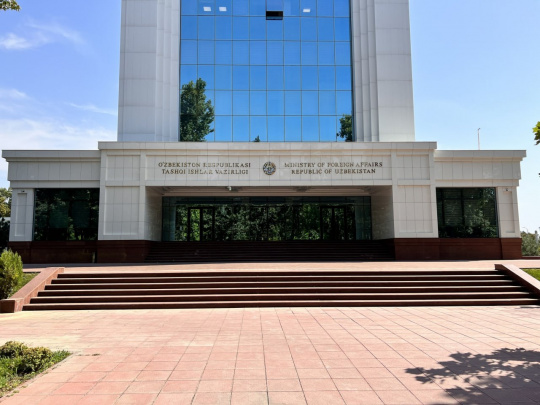
12:11 / 13.06.2025
Uzbekistan’s Foreign Ministry urges citizens in Iran and Israel to follow safety protocols amid rising tensions
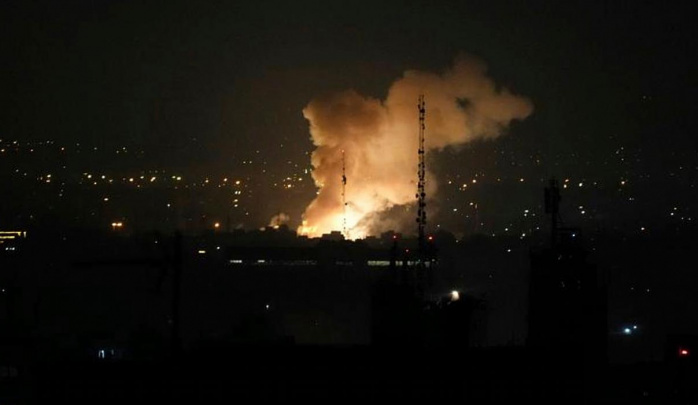
11:39 / 13.06.2025



